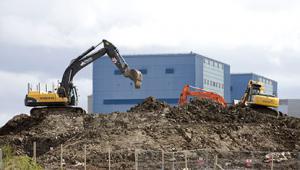The announcement follows the completion of a comprehensive review, which has resulted in a revised agreement with French energy company EDF and greater assurances around the national security implications of the project.
The government had caused controversy by calling a halt to the deal as it reached its final stages to undertake a review. There have been persistent concerns about the level of involvement of the Chinese government in critical national infrastructure and whether the deal struck with EDF represented value for money for UK taxpayers.
In a statement, the government outlined the new agreement in principle with EDF. Under the deal, Whitehall will be able to prevent the sale of the company’s controlling stake before construction is completed, without the prior notification of ministers. Existing powers, and the new legal framework, will mean the government is able to intervene in the sale of EDF’s stake once Hinkley is operational.
Also, a new legal framework will be created covering future foreign investment in Britain’s critical infrastructure, including nuclear energy, which will apply after the Hinkley project. This will bring the UK’s policy “into line with other major economies”.
In the statement, the government confirmed the approval of Hinkley Point was in line with its commitment to a low-carbon economy, and would initiate “a new era of nuclear power.”
Greg Clark, secretary of state for business, energy and industrial strategy, said: “Having thoroughly reviewed the proposal for Hinkley Point C, we will introduce a series of measures to enhance security and will ensure Hinkley cannot change hands without the government’s agreement. Consequently, we have decided to proceed with the first new nuclear power station for a generation.
“Britain needs to upgrade its supplies of energy, and we have always been clear that nuclear is an important part of ensuring our future low-carbon energy security.”
The UK currently has eight nuclear power stations, generating around 20% of the power in the UK, most of which will close by 2030. Hinkley Point C will provide 7% of the country’s electricity needs for 60 years. According to the statement, UK-based businesses will benefit from more than 60% of the £18bn value of the project, and 26,000 jobs and apprenticeships will be created.
The new legal framework means that after Hinkley, the government will take a special share in all future nuclear new-build projects. This will ensure that significant stakes cannot be sold without the government’s knowledge or consent.
Critics had questioned the deal on grounds that it guaranteed the French state-owned energy firm EDF a price for the electricity generated from the plant for 35 years, which was set at £92.50 per megawatt hour in 2012 prices.
If this price, which is around double current levels, remains above market rates, it would be met from customer bills over 35 years. This minimum payment, known as the ‘strike price’, has been designed to encourage private investment in energy projects as part of the government’s energy market reforms. However, the government made no indication in today’s statement that any further terms of the deal had been amended.

















